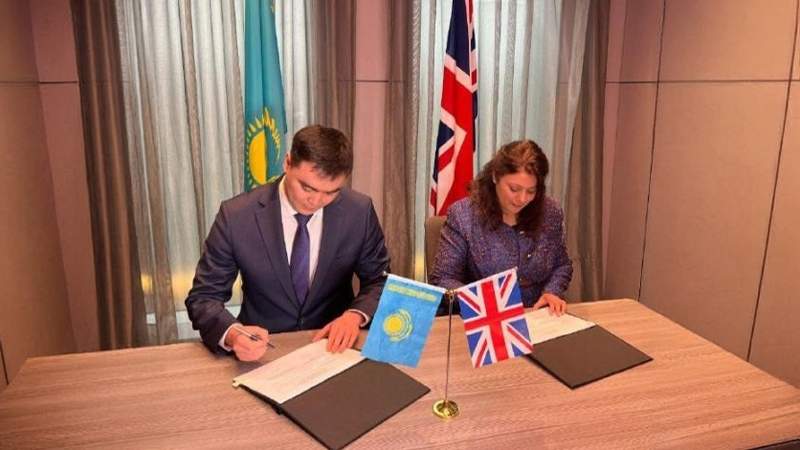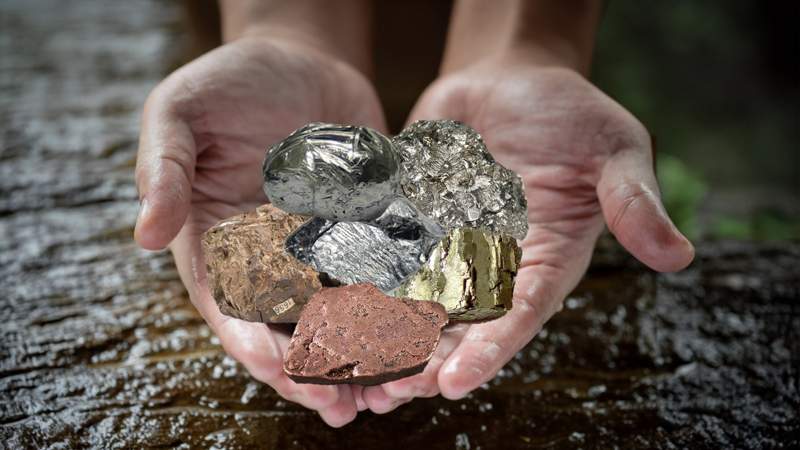A critical partnership: How Kazakhstan can benefit from nurturing cooperation with the UK in critical minerals supply chains

Amid the swift transition to a greener future across the globe, the demand for critical minerals is steadily increasing. These resources, which encompass rare earth elements and key metals, are crucial for the economic prosperity and national security of leading states worldwide.
Forming the cornerstone of the UK's Critical Minerals Strategy, creating sustainable supply chains and gaining access to deposits of these elements are essential. The strategy, initially adopted in July 2022 and subsequently updated in March 2023, underscores the urgency of this endeavour. Kazinform News Agency looks at how cooperation with the UK in this field could potentially benefit Kazakhstan.
Pivotal minerals of the future
“We are moving to a world powered by critical minerals: we need lithium, cobalt and graphite to make batteries for electric cars; silicon and tin for our electronics; rare earth elements for electric cars and wind turbines,” the UK’s Critical Minerals Strategy says.
This document underscores the increasing importance of these elements in the future. The world in 2040 is expected to need 4 times as many critical minerals for clean energy technologies as it does today.
Participants of the Energy Transition 2023 conference at the Chatham House said that manufacturers of wind turbines and electric vehicles urgently require neodymium and praseodymium, and suppliers of high-voltage power lines need cobalt and aluminium.
Of the 18 critical minerals identified by the British Geological Survey, eight are already produced in Kazakhstan, and this Central Asian country has a raw material base for the remaining eight elements. This determines Kazakhstan's entry into the Top 10 leading UK partners in this field.
Roadmap for a strategic partnership in critical minerals
In March, Kazakhstan and the UK signed a Roadmap for a strategic partnership in critical minerals. This initiative aims to strengthen partnerships by establishing joint ventures in Kazakhstan.

“It outlines steps to promote sustainable critical minerals supply chains, increase their resilience, and boost research and innovation, skills, and capacity building in this field,” the British Embassy in Astana told Kazinform News Agency.
It is noteworthy that the British side emphasizes its focus “on sharing expertise in mining and mineral processing while supporting full mining life cycle, with London serving as a hub for finance and trading.”
In turn, the Ministry of Industry and Construction of Kazakhstan states that the purpose of the partnership with the UK is “to create value added production of critical minerals, parts or components for subsequent supply of final products to consumer countries.”
Furthermore, Iran Sharkhan, Vice Minister of Industry and Construction, noted that the minimum level of raw material processing required for investors to export products from Kazakhstan corresponds to the average processing level. In other words, it pertains to products with low technological complexity or those that are semi-finished.
Key areas of cooperation
“Specific projects include joint work on advanced international practices and using modern technologies for geological mapping, as well as the promotion of best practices in regional prospecting and mapping works for critical minerals between the Kazakh Geological Survey and the British Geological Survey,” the British Embassy in Astana reported.
“One of the existing examples of cooperation in this field is a joint venture between Maritime House and ZhezkazganRedMet to develop rhenium processing in Kazakhstan,” the British diplomatic mission said.

Rhenium is a rare metal primarily used as an alloying agent in the production of superalloys. These superalloys are essential in high-temperature applications such as aircraft engines, industrial gas turbines, and rocket engines.
According to the Ministry of Industry and Construction of Kazakhstan, beryllium, tantalum, vanadium, as well as copper, titanium, and phosphorus, are already being supplied to the UK market. The Kazakh ministry did not mention the degree of processing of these minerals or the form of exported products in response to a request from Kazinform News Agency.
Expert weighs in on the Kazakh-UK cooperation in critical minerals
According to Jeff Townsend, founder of the UK based Critical Minerals Association, collaboration with Kazakhstan is essential for the UK to attain its objectives of securing access to mineral resources.
“About 40% of the country has been fully surveyed. For a country that is 6 hours away, that is an incredible opportunity to build an end-to-end supply chain: from the first exploration and extraction through to the first stages of refining and processing; all the way through to downstream companies in the UK,” said Jeff Townsend.
“Certainly, Kazakhstan is a central pillar if the UK wants to meet its critical mineral objectives. The key question is: how do we bring the two nations closer together?” the founder of the Critical Minerals Association raises the question.
According to Townsend, the political changes that have taken place in Kazakhstan in recent years have helped make this Central Asian country more attractive to companies from the UK. However, he named three issues that British business continues to face.
First of all, British companies do not have enough understanding of the business environment in Kazakhstan. Secondly, Jeff Townsend highlighted the logistical difficulties in delivering goods to the UK.
However, the most serious challenge, in his opinion, is the competition with Chinese companies. Nevertheless, the Brits are convinced that, thanks to their technological advantages and competence, they can overcome this challenge and maintain their competitiveness.
Unlimited opportunities underground and limitations in innovation
As mentioned earlier, the Ministry of Industry and Construction of Kazakhstan did not specify the form in which beryllium, tantalum, vanadium, copper, titanium, and phosphorus are exported. It is probable that these are low-complexity goods or even alloys.
Companies extracting minerals in Africa or South America typically export raw materials, which are then used in other locations for manufacturing high-tech products.
“These are all different companies, as is the reality,” says Jeff Townsend. “The companies that go to explore and extract the minerals are different from the companies that refine and process those minerals into metals or materials, which are then used by manufacturers of semiconductors, wafers, or other products.”
In his opinion, the primary drivers in Kazakhstan are likely to be companies engaged in mining and processing minerals. Once they establish themselves in the Kazakh market, other firms may show interest in the region's resources.
To sum up, it’s striking that there’s little discussion among key stakeholders about the future of producing semiconductors, integrated circuits, or other advanced technology in Kazakhstan. This underscores the ongoing exportation of Kazakh raw materials, which are in high demand by major nations and have been labelled by President Kassym-Jomart Tokayev as ‘the new oil’, keeping the phrase ‘commodity curse’ alive in the lexicon of Kazakh officials.

